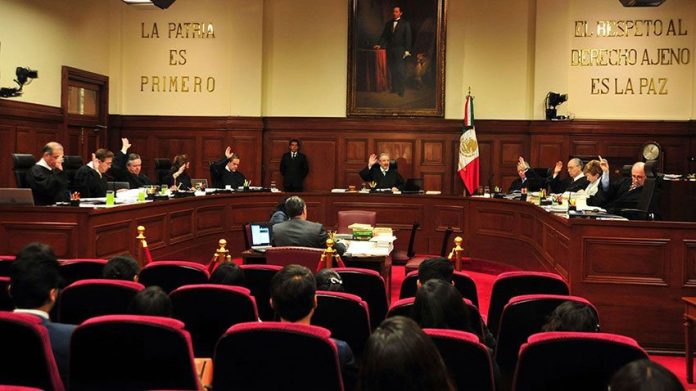The Supreme Court (SCJN) ruled yesterday that domestic workers must have access to Mexico’s IMSS social security scheme like any other worker.
Judges of the court’s second chamber unanimously approved the proposal presented by Justice Alberto Pérez Dayán, which sought to rule against an article in the federal Social Security Law that states that paying benefits to domestic employees is voluntary.
The judges determined that there is no constitutionally valid reason to exclude domestic workers from the mandatory social security scheme and that the law that allowed it is discriminatory.
They also said that women were disproportionately affected by the law because statistics show that they make up the vast majority of domestic workers, who are commonly known as muchachas or maids.
In addition, the judges said that domestic workers have traditionally been subjected to inadequate conditions, long working days and low salaries while not having access to benefits that would protect them from unforeseen events that could affect their ability to support themselves.
The court’s ruling came in response to a complaint filed by an 80-year-old woman who was employed as a domestic worker for 50 years without receiving social security benefits.
In an amparo, or injunction, the SCJN ordered the Mexican Social Security Institute (IMSS) to implement a pilot program in the first half of next year that will ensure that domestic workers have access to the benefits they will be legally entitled to.
They include sickness, maternity, health care, disability and retirement benefits as well as life insurance.
The program must take into account the particularities of domestic work, the court said, such as that some workers have more than one employer and that in many cases the relationship is not spelled out in a formal contract.
It must also be easy to implement for employers, who in most cases are private homeowners.
The final aim of the SCJN injunction is for IMSS to be in a position, after a period of no longer than 18 months, to propose to Congress the necessary legislative reforms to ensure that domestic workers’ right to access social security benefits is enshrined in law.
Within a period of no longer than three years, the intention is for all domestic workers in Mexico to be enrolled in a robust and effective social security scheme.
In response to the court order, IMSS director Germán Martínez Cazares instructed officials to start work immediately on the design of the pilot program.
In a short video posted to social media, Martínez also said that he directed IMSS officials to hold talks with civil society organizations to inform them of their work.
“The Mexican Social Security Institute is committed to opening the doors to all Mexicans without distinction,” he said.
Federal Labor Secretary Luisa Alcalde described the Supreme Court’s ruling as a “watershed,” adding that the secretariat she heads is committed to ensuring that domestic workers are treated fairly.
“. . . We are confident that we can advance in the protection of their rights and without a doubt include them in the social security [scheme],” she said.
